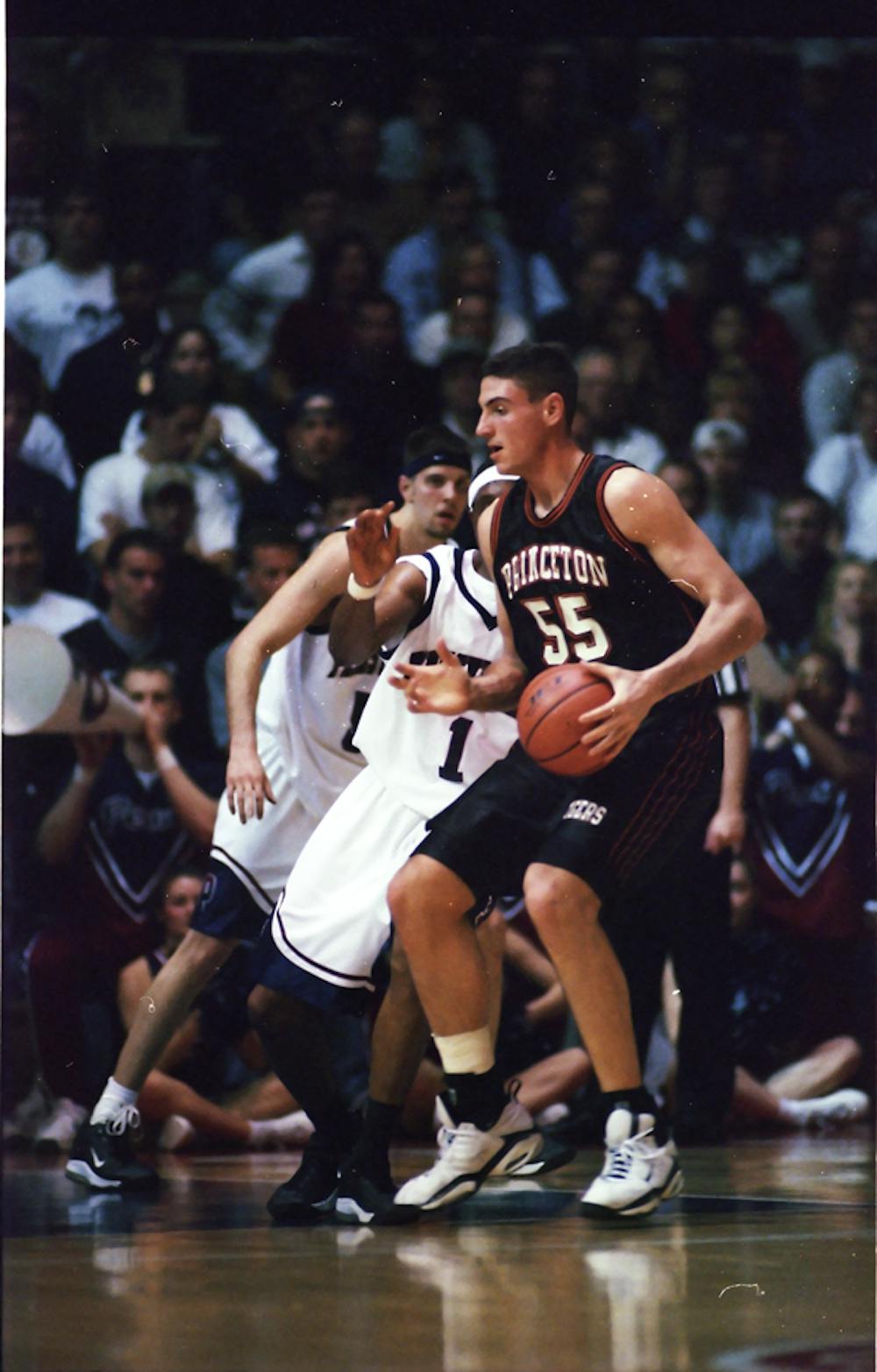After New York Mets pitcher Chris Young earned his first win in his new uniform against the Philadelphia Phillies, the 6-foot-10 Princeton graduate sat down with The Daily Pennsylvanian to chat about all things baseball, basketball and Penn-Princeton.
The Daily Pennsylvanian: You were recently appointed to serve on a Princeton Athletics advisory board. Can you talk about what you will do?
Chris Young: I’m on the committee to help Princeton in any way, shape or form. They’ve had one meeting which was in February — baseball season conflicted.
[I want to] create the best academic and athletic environment and make sure that all the student athletic and academic and social needs are met.
DP: What do you think about the focus Division I programs have on athletics rather than academics?
CY: The lines have been blurred a little bit in that the primary purpose of being able to play athletics in college is to get our education. And coaches have a responsibility as educators to make sure their students graduate. They are providing them an opportunity to advance in life beyond what they might have been able to do outside of athletics.
Athletics is an avenue to further your education, and I think in some places — especially some of the big-time athletic programs, it’s been lost on the schools, the administrators, the coaches, everybody collectively.
DP: You wrote your senior thesis as a minor league player on the road. What kind of advising did you have?
CY: I had a great academic adviser and senior thesis adviser, Mark Fischle. He was extremely influential in helping me achieve my dreams of going to play baseball and still getting my Princeton degree on time and with my class. That was extremely important. When I decided to become a professional athlete after my sophomore year, the stipulation was that I was going to return to school and finish my degree — that was non-negotiable.
DP: If the issue of an Ivy football postseason arises, which side will you argue?
CY: I see both sides. I really believe that students at Ivy League schools … can juggle a lot. They’ve got a lot on their plates, they’re able to play Division I athletics, and maintain the requirements in the classroom, and meet all the requirements and graduate with honors.
These are special kids, and I don’t think placing limitations on them because of history or tradition is the right thing to do. Instead I feel the opposite, that they should set the bar a little bit higher than the people before them. These are a few special students who have been able to accomplish a lot at an early age and obviously meet the rigorous criteria to get admitted to high academic institutions, then certainly they can handle a lot.
DP: You played both baseball and basketball at Princeton. What do you think about Sydney Johnson leaving?
CY: He’s a great man, and he’s done a great job with the program, and he certainly left the program in better shape than when he found it.
I was surprised, but I don’t fault him at all. He’s got a great opportunity, and I’m sure it weighed heavily on his mind, and he felt like it was the best thing for him and his family.
DP: Do you have any fun memories from the Penn-Princeton rivalry?
CY: Penn had most of the fun memories against us when I was there — they beat us three out of four times — but my freshman year we had a great comeback at the Palestra. We were down 27 points. I remember thinking at halftime, ‘Man, this was as low as it could get.’
Then the second half couldn’t have been more opposite [Princeton won, 50-49]. It was just a special game, at the Palestra … the rivalry and everything else. It was pretty cool.
But Penn had the last laugh — they won the league and got to the tournament that year and the next.
DP: Why did you want to play two sports in college?
CY: I felt like I was good enough to play both in college, and I thought, ‘Why be limited?’
It goes back to limitations — I’m talented in both, I’ve played both my whole life, why should college be any different?
Certainly I had hoped to play professionally in one or the other, but I just felt like I … shouldn’t be limited to just one.
DP: How has a degree from Princeton helped you in sports?
CY: Your education lasts a lifetime, literally. It’s the most important thing you can do for your career, I don’t think it can be underestimated.



